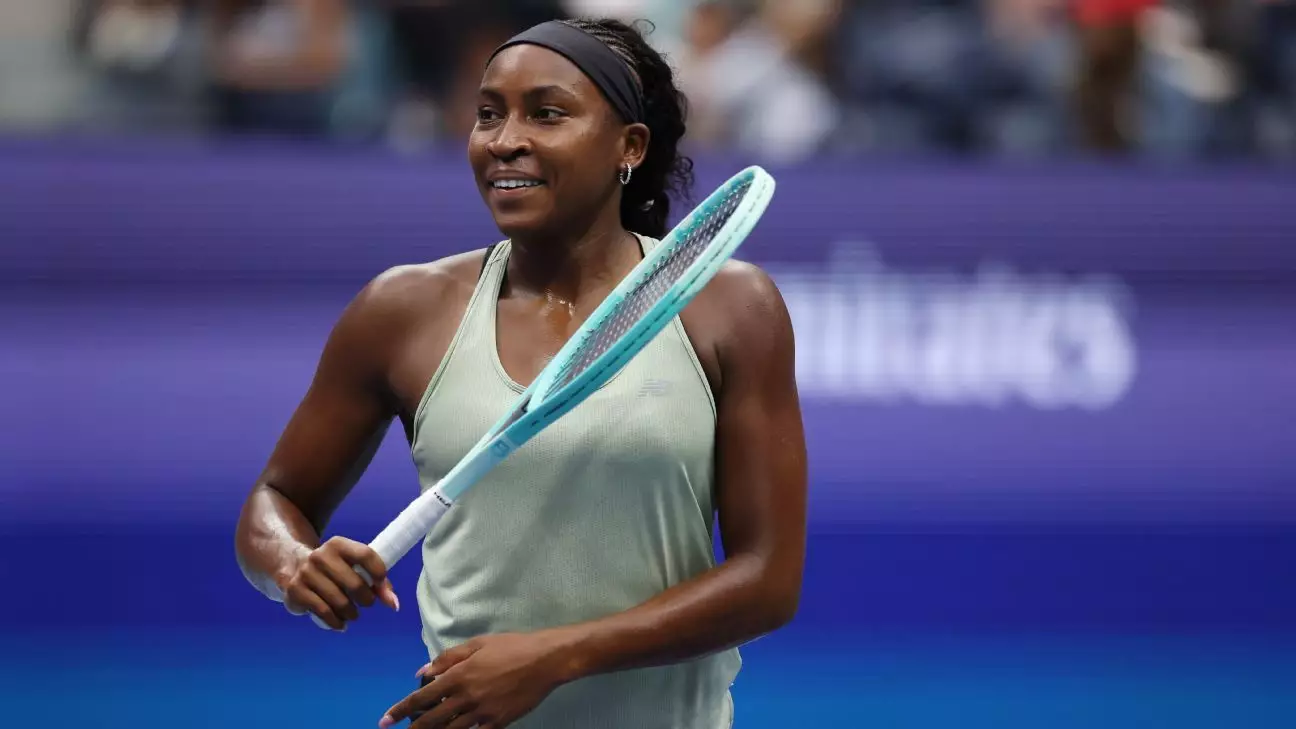Coco Gauff’s decision to part ways with her coach Matthew Daly just days before the 2025 US Open signals a critical moment in her athletic journey, reflecting a desire for rapid evolution amid persistent challenges. While Daly, credited with technical insights especially around grip, has maintained professionalism in the wake of his departure, Gauff’s move to retain her long-term confidant Jean-Christophe “J.C.” Faurel and invite biomechanics expert Gavin MacMillan underscores her commitment to refining her game from multiple angles. This combination hints at a strategic overhaul aimed at addressing her recurring serve issues and revitalizing her aggressive baseline play—elements essential if she hopes to reclaim her top-tier status.
Her recent struggles at the Canadian Open, marked by a startling 42 double faults across just three matches, expose the fragility of her serve—an aspect crucial at the highest levels of tennis. Gauff’s willingness to incorporate a renowned biomechanics specialist like MacMillan, known for assisting Aryna Sabalenka, demonstrates a proactive approach, embracing scientific methods to correct technical flaws. This shift is not merely reactionary; it reflects an understanding that incremental improvements in serve consistency could be transformative for her game.
Timing and Transparency: Risks and Rewards
Timing, in the context of professional tennis, is everything. Gauff’s decision to change coaching personnel just before the US Open is bold—some might view it as a gamble, potentially destabilizing her momentum. Yet, it also imbues her campaign with a renewed sense of purpose and an openness to innovation. Notably, she has yet to publicly comment on these alterations, which could be a strategic choice to maintain focus and avoid distractions. The silence may also be a sign of internal reflection, as the young star evaluates how best to leverage her new team setup.
Daly’s traditional role as a grip specialist and the tenure he shared with Gauff contributed to her success at the China Open and her crowning as WTA Finals champion—a testament to their effective partnership. However, her recent performances, especially her early exit at Wimbledon and subpar serving statistics this summer, reveal that her struggles are not solely technical but also mental. Her move towards a fresh coaching approach could be a way to inject renewed confidence, blending technical precision with psychological resilience.
Aiming for Long-Term Growth Rather Than Quick Fixes
What separates Gauff from her peers is her willingness to evaluate and prioritize growth over short-term results. The coaching shakeup is a signal that she refuses to settle for mediocrity, actively seeking opportunities to elevate her consistency and power. Her previous success—winning the French Open and reaching multiple finals—remains a strong foundation, but to dominate future slams, she must overcome her serve woes and enhance her tactical adaptability.
The upcoming US Open presents both a challenge and an opportunity. With her new team in place, Gauff embarks on a crucial phase, one that could define her trajectory for seasons to come. The complexities of tennis—technical mastery intertwined with mental fortitude—demand not only strategic adjustments but also a mindset geared towards resilience. If her new coaching alliance succeeds, it might propel her to new heights, elevating her from talented contender to a perennial major champion.


Leave a Reply